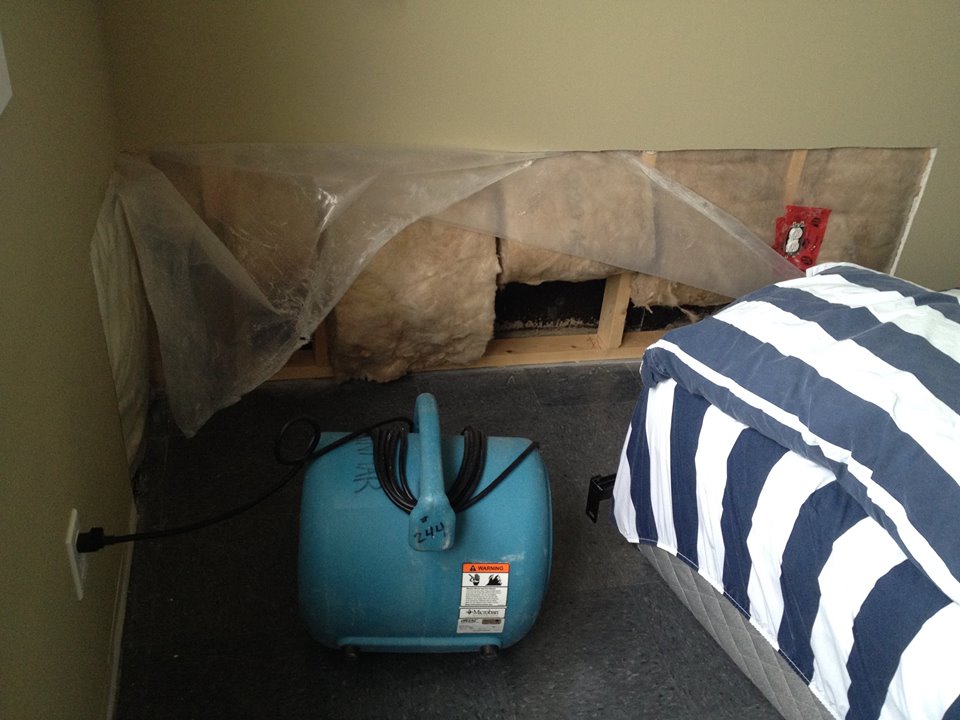
WINMAR we do all general contracting services, however, we are particularly well known for specializing in insurance restoration. Dealing with insurance companies is what we do every day. We know the process inside and out. However, more times than not, this is the homeowner’s first insurance claim ever – they have never been through it and don’t know what to expect.
We are here to help! The following is a typical (and lengthy) insurance claim process:
1) Most homeowners purchase their home insurance from a Broker or Agent – someone who sells insurance.
Upon experiencing water damage, fire damage or any other type of property damage to your home, you will call your broker to inform them of what happened.
2) Your broker will inform your insurance company.
Your insurance company will then assign an Adjuster. This can take minutes or several hours, depending on the severity of the claim. In extreme cases, this can even take a day or more.
What can I do in the meantime?
If your home requires immediate attention (i.e. there is water in your basement) feel free to call a trusted restoration company (WINMAR) to get started on what the insurance world calls “loss mitigation” or, simply put, cleaning up to prevent further damages.
3) Your adjuster will contact you to discuss the claim.
Depending on the insurance company, they will refer you to a restoration company to help clean up the damages. If you’ve already called a company in to help, they will take note of that and confirm coverage. Sometimes your adjuster will want to attend the home to view the damages and determine the next steps.
Note about determining Coverage: under no circumstances can your restoration company confirm insurance coverage. Every policy is written differently and every adjuster interprets your policy differently. Our job as a restoration company is to confirm the cause of loss, report this to the insurance company and your adjuster is the only person who can confirm coverage.
4) Your restoration company will come to your home, view the damages and, if necessary, begin the emergency services portion of your claim.
The goal of this step is to do the minimal work required to prevent further damages from occurring to your home. i.e. water can lead to mould growth – our job is to prevent this.

5) Once the emergency portion is complete, your insurance company will require quotes for the repair work.
Most companies require 2 quotes. Depending on the size of the job, they may require 3. Often they will recommend companies to call, or you can always choose your own.
Homeowner’s choice: Do not feel obligated to use a company your insurance adjuster or broker recommends. They should never “bully” you into using someone you aren’t comfortable with. This is your home, your belongings and it is always YOUR choice as to what company completes the work.
6) Waiting for quotes.
This is the step that always frustrates homeowners. It takes time to put together an accurate quote as there are many things to consider. If it is a smaller job, this can take 1-5 days. However, if you’ve had a fire or your finished basement was damaged by water, this can take 7+ days. If 3 companies are required to quote, you now have to wait for all of those companies to get the paperwork done. Is there flooring involved? The insurance world uses a special system for determining flooring values, called ICC. This means samples of your flooring have to be sent away to Toronto for evaluation. Depending on what part of the country you live in, this could take 3+ days for turnaround. After the values are determined, they have to be sent to an ICC-certified flooring vendor to provide an ICC quote. Restoration companies have to coordinate this and wait for results before they are able to submit their estimate. We ask for your patience during this process. Please feel free to call your restoration company anytime and ask about the status of your quote. You should always receive a friendly answer.
7) Once all of the quotes have been submitted to your insurance company, your insurance adjuster will contact you to discuss your options.
This isn’t always the same day the quotes are received. If we have submitted the quote, it is out of our hands until you talk to your adjuster. You have several options at this point, which your adjuster will describe to you.
8) Your insurance adjuster will often approve the lowest quote, regardless of who the company is.
This is where your homeowner choice comes in. If the lowest quote isn’t the company you want, you don’t have to use them! However, your insurance company will only pay that amount. If there is a difference between what the insurance is willing to pay and what the restoration company you want has quoted, you will be responsible for the difference. Ask your preferred restoration company if they are willing to match the approved dollar amount, or if they are willing to lower their quote at all to make it more reasonable for you. Often the quotes are just a fraction apart from each other. Forming a good relationship with your restoration company of choice will help you immensely at this stage. Sometimes paying a small amount of money out of your pocket is worth it to have a company you trust working in your home.
9) Meet with your restoration company at your house.
This gives both you and the restoration company the perfect opportunity to discuss the entirety of the job. Time frames, schedules, colour choices etc. can be discussed at this time. Also, if there are any changes you’d like to make or extra work you want completed at the same time, this can be brought up now. Also, make sure to discuss their warranty policy. Do they have one? How long is it? What does it cover? Things to consider: How long have they been in business? Can they back up their warranty? Are they part of a larger organization? These are all good questions to ask.
10) Deductibles.
Despite popular belief that you will have to pay your deductible to your insurance company, most likely you will need to pay this to your restoration company. Typically the insurance adjuster will deduct your deductible amount from the restoration company’s invoice amount, leaving an outstanding balance payable to your restoration company. Discuss this with your restoration company of choice prior to work starting. Many restoration companies require this amount before starting work. Ask if there is anything you can do to help minimize this cost. Maybe you’re willing to allow them a sign in your yard, or to do some of the work yourself.
11) Getting The Work Done.
After you’ve picked your restoration company and the amount has been approved, work starts! This is an exciting time for homeowners, they start to see some real progress on putting their house back to the way it was. Your restoration company will work with you to schedule all of the work that needs to be completed. There will be things you will need to do, like choosing flooring, paint colours, cabinets, etc. The faster you can make these choices, the faster work can continue.
12) Job Complete!
Do a happy dance in your newly restored home and smile. If you’re satisfied with the work, find your restoration company on Facebook and/or Google and leave a positive review. Handwritten cards & letters of reference are always appreciated as well. The insurance industry is a tough and often disliked industry, you’d be surprised how a small “thank you” or “job well done” can change someone’s day.

What if you’re not satisfied?
Always call your restoration company first. Give them the opportunity to make things right. If you’re having trouble with your contact, ask for the manager or boss. If you are still having difficulty getting things corrected, call your insurance adjuster. Often a phone call from them will get the ball rolling back in the right direction.
Start to Finish, this process can take anywhere from 30 days to 6+ months. It can be frustrating trying to deal with all of the steps and people involved, and waiting for things to happen is always the worst part. A good restoration company will understand that you didn’t plan for this to happen and will accommodate you so you have as little disturbance to your life as possible. Finding a company you are comfortable with is your best bet to a satisfactory result.
Open communication, honesty, & integrity are 3 rules we live by here at WINMAR. If you’re experiencing an insurance claim & damage to your home or business, please give us a call!
WINMAR® Regina's experienced and certified staff provide full-disaster service restoration for all types of loss:
With their 24 hours a day, 7 days a week, 365 days a year service they always come through for you. See more services by clicking on the show more info button below. They also offer full general contracting services to Regina and the surrounding area.
General Contractor Services include:
- Renovations
- New Constructions
WINMAR® knows what it takes to satisfy its customers.
'WINMAR® Coming Through For You!'